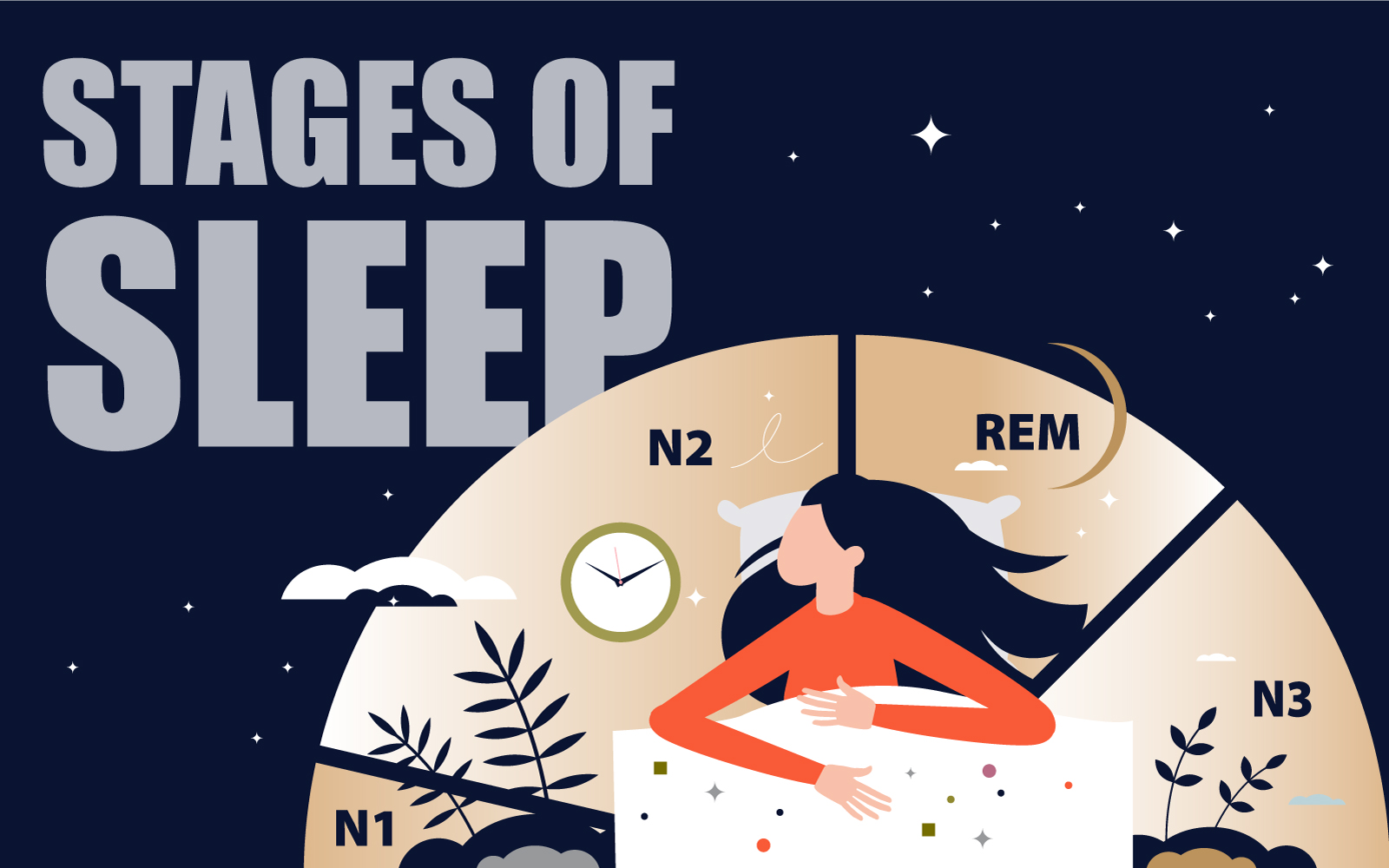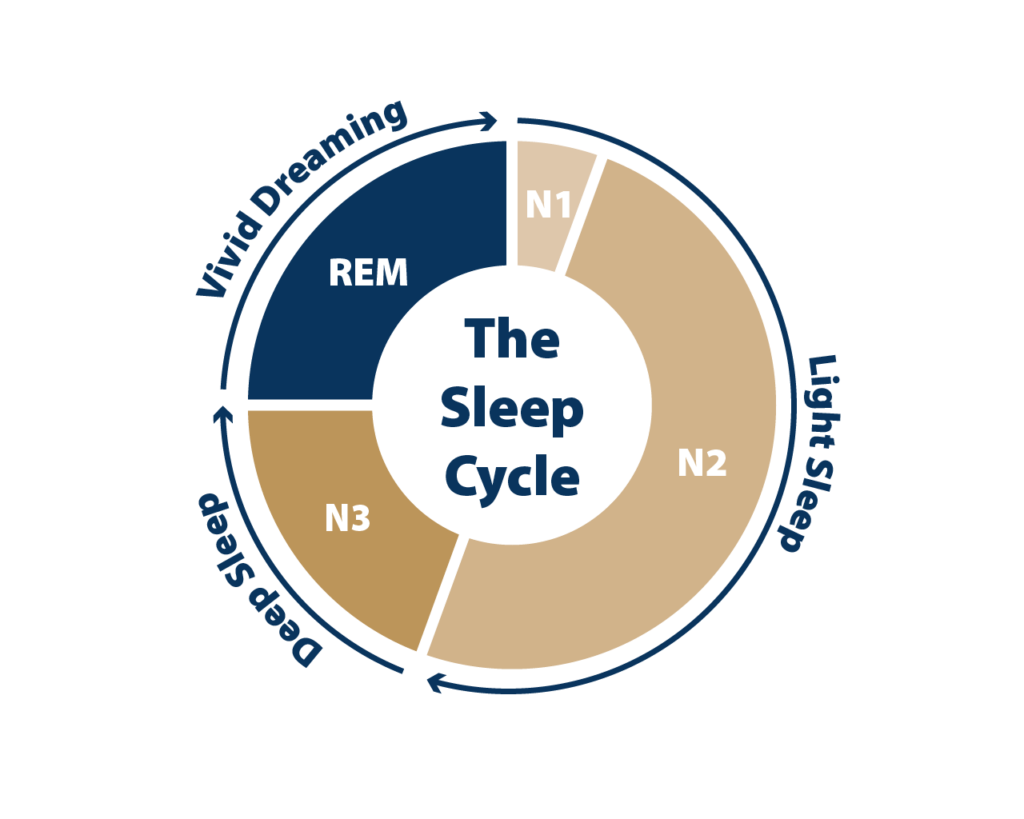
21 Feb What happens when we sleep? The 4 stages of Sleep
What happens when we sleep?
What is sleep? Sleep is a normal periodic state of slumber of the body and nervous system, characterized by a reduction of consciousness and (voluntary) motor activity and elimination of alertness that is immediately reversible,* as well as a reduction in the ability to react to stimuli. (*turnaround is the ideal thermodynamic process which allows a system to return to its original state.)
- Definition of Sleep by Mr. G. Babiniotis, Dictionary of the Modern Greek Language
We all know how important it is to get enough sleep every night. But do we pay enough attention to the quality of our sleep? The science of sleep is a relatively new field, with much still to discover. However, one aspect of that has been well documented is the different stages that comprise our sleep cycle.
Essentially, sleep is made up of four stages, which are repeated in 90–120-minute cycles each night. The cycle begins with stage N1, that is, sleepiness, or the feeling of not being able to keep our eyes open, and ends with one of the most important (and well-known) stages of sleep, the REM stage, which is also when we dream. In the diagram below, you may see a visual representation of these stages.

- Diagram by Sleep Foundation, Stages of Sleep: What Happens in a Sleep Cycle December 8, 2023
The first stage begins with the slowing down of brain activity and onset of muscle relaxation. This is the sleep transition stage, during which we maintain some muscle activity and our breathing is still normal. Sleep is light, and we can be easily awakened.
In the second stage, N2, body temperature drops, and heart rate slows. Muscles relax further, and breathing slows down. We are still in the light stage of sleep, and can awaken relatively easily, but we do not immediately return to full alertness.
The third stage of sleep (N3) is known as deep sleep, and it is characterized by the slowing down of brain activity, as our brain is flooded by delta waves. During this stage, our body is in recovery and rejuvenation mode. Muscles, tissue and bones are restored, and our immune system strengthens. This is why sleep deprivation at this stage can affect the effectiveness of our immune system, as well as the production of certain hormones and the regulation of glucose metabolism. When we awaken during this stage of deep sleep, we are not yet fully conscious, and our brain function needs some time to recover.
The final stage of sleep is extremely important. This is the well-known REM (Rapid Eye Movement) stage, which is associated with increased brain activity and the presence of intense dreams. This is the only stage during which we have eye movements (hence the distinction between REM sleep and the non-REM sleep of the previous 3 stages). During this stage, our muscles are completely relaxed (besides those of the eyes, heart, and respiratory system), to keep us from moving while dreaming and protect us from injury.
During the REM stage, our dreams are more vivid than in the other stages. This is because our brain is processing the new emotions and information that we acquired during the day, deciding what to delete and what to keep (thus greatly enhancing our memory and learning abilities). Scientists believe that this is the stage associated with brain development.
The REM stage should not be skipped, as it can affect memory and learning. The amount of REM sleep we need each day varies depending on our age and circumstances, but on average, an adult should spend 2 hours a night in REM sleep. Of course, our bodies can adapt to our current situation, and the amount of time we need of each stage of sleep can vary from day to day. Our body can self-regulate and ‘decide’ how much time we need each night.
- Video by Sleep Foundation, “How Does Sleep Work and WHY Do We Need It?”
Yet again, we come to realize the value of the quality of our sleep and how it can affect all aspects of our lives. We must therefore give it the importance it deserves, and learn as much as we can about it at every opportunity!



